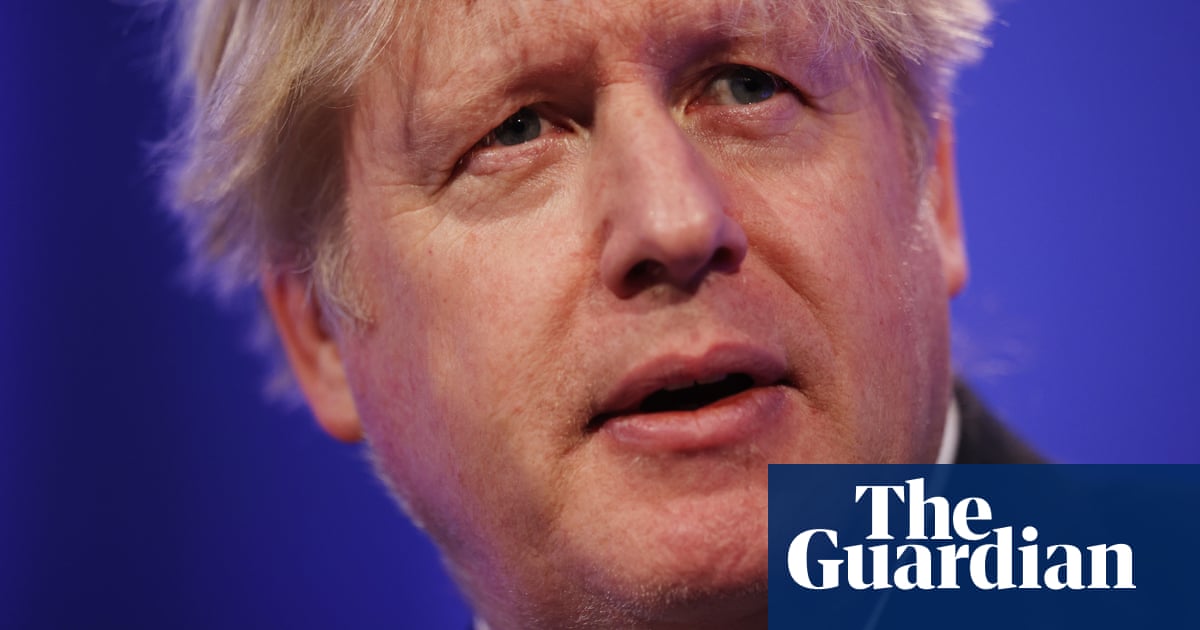
MPs will not get a vote on the government’s plans to slash aid spending, Boris Johnson has said in the House of Commons, confirming that the cut is intended to be temporary.
The former shadow international development secretary Andrew Mitchell said Johnson was at risk of setting an illegal budget if it did not meet the legal obligation to spend 0.7% of gross national income (GNI) on aid.
The government’s integrated review of foreign and defence policies, which was published on Tuesday, pledges to reinstate the commitment “when the fiscal situation allows”. Conservative MPs have previously expressed scepticism that the cut would be reversed.
The government has argued reducing aid spending to 0.5% is legitimate because of the extraordinary circumstances of the pandemic – which the legislation provides for – although it would not allow for it to become a permanent cut.
Speaking in the Commons about the review, Mitchell said the government was in danger of breaking the law.
“Is he [Johnson] not concerned that our position as chair of the G7 is undermined by Britain being the only country in the G7 that is cutting its development budget in breach of our Conservative party manifesto commitment?” he said.
“And if he is determined to pursue that aspect of his policy, I know my right honourable friend, he is a democrat – when will you bring it to the house for vote? Otherwise, he may be in danger, as from the start of the new financial year, of creating an unlawful budget.”
Conservative opponents to the cut, which include the former shadow cabinet minister Damian Green and the chair of the defence select committee, Tobias Ellwood, believe they have enough MPs to defeat any vote in parliament on the issue.
However, responding to the former foreign secretary Jeremy Hunt during the Commons debate, Johnson confirmed the government did not believe a vote was necessary and that he intended to reinstate the commitment.
Hunt asked: “Does he also agree that because the 0.7% cut is strictly temporary relating to the pandemic, there’s no need to amend legislation?
Johnson said Hunt was correct about about “the ODA [official development assistance] commitment”, a comment that commits the prime minister to reintroducing the spending post-pandemic.
In November, Dominic Raab, the foreign secretary, appeared to commit to a vote after the cut was announced by the chancellor, Rishi Sunak, in the spending review. “We will need to bring forward legislation in due course,” Rabb said.
Asked whether the decision not to bring a vote was a clear commitment that the cut would be temporary, Johnson’s spokesperson said the foreign secretary still intended to set out to MPs how the spending would be reviewed. “We’re looking at this carefully, and the foreign secretary will set out to the house how we intend to proceed in due course,” they said.
The UK has already announced it will give Yemen about £87m in aid this year, down from £164m in 2020, and leaked reports have suggested there are likely to be substantial cuts to other war-torn areas including cuts to Somalia by 60% and to South Sudan by 59%. The planned cut for Syria is reported at 67% and for Libya it is 63%.
Johnson was criticised repeatedly for the move by Conservative MPs in the Commons. Pauline Latham said the government was “balancing the books on the backs of the poor”, saying the money was being taken from “children and mothers, and families, whole families, are devastated by what they are having to face”.
Sir Roger Gale said he had been proud of the last manifesto commitment to aid and said spending would have fallen anyway because of the fall in the UK’s GNI. “We all know that the 0.7% represents less money than it did a year ago and now isn’t the time to cut our aid to the Yemen or to withdraw our support for voluntary services overseas.”
Johnson said that MPs were “in danger of talking Britain down because the investments that we are making are colossal, absolutely colossal by international standards … we’re the second biggest contributor in aid in the G7 already … We’ve had exceptional circumstances, we are entitled to vary that [0.7%] commitment and that is what we are doing.”












